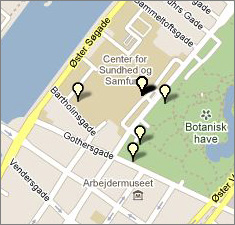
PhD at the University of Copenhagen
Since 1993, the standard educational process in becoming a researcher requires three years of study, which predicates that applicants have acquired a Masters degree corresponding to a Danish five year Masters programme in the subject concerned (or a closely related one), or have acquired similar qualifications in some other way.
- Read more about a PhD programme at www.phd.ku.dk
- Read about the PhD programme at the Ministry of Higher Education and Science website
PhD programmes are organised and administered by individual faculties and more detailed information about the requirements and options are available below:
- Faculty of Humanities
- Faculty of Law
- Faculty of Science
- Faculty of Social Sciences
- Faculty of Health and Medical Sciences
- Faculty of Theology
PhD programmes at UCPH
In the research programme system, there are various ways of organizing a PhD programme. Also read about the various PhD schemes:
The standard model
The standard model is also called the 5+3 scheme. This requires students to have completed a Masters programme, i.e. as a rule a five year Bachelor and Masters process followed by a three year PhD programme. Universities can grant admission to graduate programmes on the basis of an assessment of the level of completed Masters programmes or the like.
Flexible models (3+5 and 4+4 schemes)
In 1992, universities were permitted to admit students contemporaneously on Masters and PhD programmes. Students thus now have the option of starting a PhD process before they have completed their Masters. This flexibility is intended to ensure that universities have the best opportunities for organizing and targeting masters programmes so they interact with the PhD process as well as possible.
The flexible models enable students to opt for a career as a researcher early on. The flexible models thus support graduate talent care and early recruitment.

